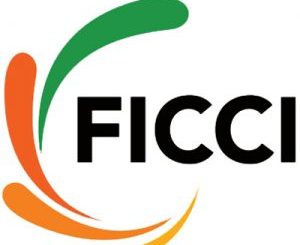
FICCI organised a conference on SDGs– A Call to Corporate Sector Action in New Delhi. The occasion was graced by Mr. Erik Solheim, Executive Director of UN Environment. The conference gave platform to the corporate experts from the field of sustainability to engage effective dialogue on how the global sustainable goals can help them streamline their efforts and understand what it all means for their business—both now and in the long term. FICCI conceived the idea of this conference with an objective of creating the discourse around corporate role as well as enabling policies that will help to articulate and deliver on the SDGs. DR. A Didar Singh, Secretary General, FICCI said “We at FICCI believe that it is significant to have sustainable business with responsible and inclusive growth. Out of the ambitious 17 SDGs the conference deliberated on the three environmental SDGs cutting across corporate sectors, such as– Sustainable Waste Management in Cities, Sustainable Consumption of Natural resources and Sustainable forestry and Agriculture. Many corporates are at the forefront of sustainability and we see several examples of how corporates have integrated sustainability as a strategic business imperative.” “It is important to have a deep and abiding commitment in engaging corporate sectors in the discussions on SDGs. There has been minimal conversation with the private sector on Millennium Development Goals (MDGs). It is heartening to see the shift in the UN to embrace the private sector for sustainable development goals. Role of corporate sector has gone on unheralded. Creating viable business models lies at the heart of sustainability,” said Dr. Bhaskar Chatterjee, Advisor, FICCI and Former Director General & CEO, Indian Institute of Corporate Affairs. “The world is moving in a positive direction and India is in the epicentre of the global dialogue. Businesses are a crucial part of the SDGs and every environmental problem can be seen as a business opportunity. There are potentially three areas that need cooperation – fourth industrial revolution, addressing pollution issues and protection of nature.
In order to address plastic waste problem, we need to build a new plastic economy, either by recycling or finding substitutes. One needs to understand how businesses can serve society and how societies can benefit from corporates,” said Mr, Erik Solheim, Executive Director, UN Environment. He quoted Mahatma Gandhi by saying “Be the change you wish to see in the world”. “India is in the centre of global debate for issues such as, growing population, unregulated urbanization, and requirement of international cooperation for addressing biodiversity and global warming. Corporates need to put protocol to embrace circular economy. Corporates are already taking initiatives that are aligned with the SDGs. There is a need to have substantial data to measure SDGs through existing actions of the corporates. In a report by DNVGL it is forecasted that SDGs would not be achieved in its entirety, though to some extent developed countries would be able to achieve them,” added Dr. Mukund Rajan, Chair, FICCI Environment Committee, Chief Ethics Officer & Chairman, Tata Global Sustainability Council






Leave a Reply
You must be logged in to post a comment.